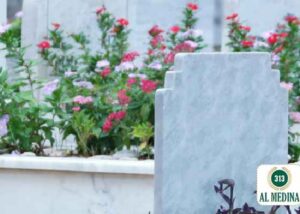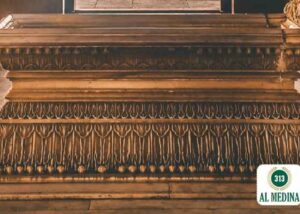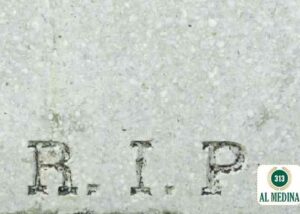Is it prohibited to build upon a grave if the deceased person is a scholar or righteous person?
Quran
Hadith
Islamic Text
According to the sound opinion in the Hanafi Madhab it is prohibited to build upon a grave even if the deceased person is a scholar or righteous person. Since the Hadith is general and offers no exceptions.
عَنْ جَابِرٍ، قَالَ: نَهَى رَسُولُ اللهِ صَلَّى اللهُ عَلَيْهِ وَسَلَّمَ أَنْ يُجَصَّصَ الْقَبْرُ، وَأَنْ يُقْعَدَ عَلَيْهِ، وَأَنْ يُبْنَى عَلَيْهِ
(Sayidina) Jabir (May Allah Most High be pleased with him) said, the Messenger of Allah ﷺ prohibited plastering over a grave, or sitting upon it, or building upon it. (Sahih Muslim, 970 – 94).
The Hadith above prohibits building on graves and does not make an exception for scholars or righteous people. Therefore, the sound opinion in the Hanafi Madhab is that there is no exception. Another proof for this opinion is the example of the Sahabah.
No doubt that the Sahabah were the most knowledgeable and pious people from this Ummah after our beloved Prophet ﷺ. However, neither the Prophet ﷺ nor fellow Sahabah (May Allah Most High be pleased with them all) built upon their graves.
وأن يبنى عليه أي: على القبر لما ذكرنا، ولفظ البناء عام يشمل سائر أنواع البناء، فالكراهة تعم في الجميع. (شرح سنن أبي داود)
And building upon it. Meaning upon a grave due to what we have mentioned. The word building is general. It encompasses all forms of building. Therefore, the dislike encompasses everything. (Imam Badr al-Deen al-Ayni, Sharh Sunan Abi Dawood).
In the Nass (text) above, we find one of the more senior scholars of the Hanafi Madhab mentioning that the prohibition is general and inclusive. However, it is important to note that some Hanafi scholars did mention an exception:
وَقَدْ أَبَاحَ السَّلَفُ الْبِنَاءَ عَلَى قَبْرِ الْمَشَايِخِ وَالْعُلَمَاءِ وَالْمَشْهُورِينَ لِيَزُورَهُمُ النَّاسُ. (مرقاة المفاتيح شرح مشكاة المصابيح)
Indeed, the Salaf permitted building upon the graves of Shayookh, scholars and prominent people, so that people may visit them. (Imam Ali al-Qari, Mirqaat al-Mafateeh).
In the Nass (text) above, Imam Ali al-Qari narrated a position making an exception for scholars and prominent people. This exception does go against the general statements found in the authoritative works of the Hanafi Madhab (see link below for details). It also seems to go against the general statement in the Hadith and the practice of the blessed Sahabah. It may be for these reasons that Imam Ibn Abideen narrates it as a weak opinion.
وَفِي الْأَحْكَامِ عَنْ جَامِعِ الْفَتَاوَى: وَقِيلَ لَا يُكْرَهُ الْبِنَاءُ إذَا كَانَ الْمَيِّتُ مِنْ الْمَشَايِخِ وَالْعُلَمَاءِ وَالسَّادَاتِ اهـ. (رد المحتار على الدر المختار)
In al-Ahkaam from Jami al-Fatawaa: It is said (Qeelah) that building is not Makruh if the deceased is from the Shayookh, scholars or Sayids. (Imam Ibn Abideen, Radd al-Muhtaar).
In the Nass (text) above we find that Imam Ibn Abideen narrates the opinion that one can build upon the graves of scholars and other people of prominence as a weak opinion. Since the Nass mentions Qeelah (قِيلَ) before the opinion. The default in books of Fiqh is that Qeelah is mentioned prior to weak opinions.
Another matter to consider is the claim that you can build upon the graves of the righteous will essentially nullify the prohibition of building upon graves. Since, every person who loses a loved one may claim that his relative was righteous and thus he will build on the grave. Righteousness and piety are only known by Allah Most High. Thus, it will not be possible to disprove such a claim and the prohibition in the Hadith will not be implemented.
And Allah Most High Knows Best.
-Answered by Shaykh Noorud-deen Rashid (23.08.2022)
See also:
Building on graves
Building upon graves in situations of need or necessity
See also video:






